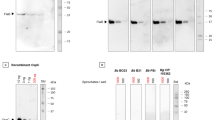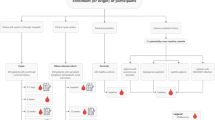Abstract
The high failure rate of tick-borne infection (TBI)-related testing underscores the need for novel approaches that do not rely on serology and two-tier testing. Delayed diagnosis of TBIs, especially Borrelia infections, results in high healthcare costs and great suffering. There is a significant need for a reliable blood test that can aid in the diagnosis of Lyme disease, particularly when the current FDA-approved serological test is not sensitive enough to detect early Lyme patients who have not yet produced antibodies against Borrelia. Bacteriophages are viruses that specifically associate with their bacterial hosts, particularly prophages, bacteriophages residing in bacteria, and have proven to be tightly correlated with their bacterial hosts. They are poised to have wider applications as markers to detect bacteria, particularly in infectious disease. The gene of choice depends on the prevalence of phages within a particular group of bacteria. Phage genes that have been used as molecular markers to examine phage diversity include structural genes encoding the major capsid protein, the portal protein, the DNA polymerase, and the terminase. Borrelia species carry specific phage sequences that can be used as a proxy to identify the bacteria. Using phages as a proxy for bacteria is beneficial, as phages can be detected more easily than bacteria and can be used to bypass the cryptic and tissue-bound feature that typifies human Borrelia infections.
We explored a completely new way of detecting Borrelia using Borrelia-specific bacteriophages as a diagnostic tool. Our detection method, patented by Phelix R&D and Leicester University (WO2018083491A1), could potentially transform infectious disease diagnostics through the innovative use of real-time PCR to target circulating bacteriophage DNA in blood from patients with Lyme disease. Firstly, this bacteriophage-based approach offers increased sensitivity since bacteriophages are typically present in five- to tenfold excess over bacterial cells, making it more accurate and sensitive than conventional bacteria-targeting PCR tests. One of the reasons bacteria-based PCR tests are frequently negative is due to the low bacterial concentration in the blood. Bacteriophage-based PCR surpasses this barrier and offers a direct test, as phages are part of bacteria’s own genetic material, in contrast to all existing indirect tests (ELISA, Western BLOT, LTT/ELISPOT test). Secondly, a phage-based test can differentiate between different Lyme disease-causing and relapsing fever-causing Borrelia subtypes (B. burgdorferi s. l., B. miyamotoi, etc.), given that bacteriophages are indicators of bacterial identity. Finally, this test can detect Lyme disease in both early and late stages.
Access this chapter
Tax calculation will be finalised at checkout
Purchases are for personal use only
Similar content being viewed by others
References
Shan J, Clokie MR, Teulières L (2018) Borrelia phage. P.R.A.D.L. University of Leicester, UK
Shan J, Patel KV, Hickenbotham PT et al (2012) Prophage carriage and diversity within clinically relevant strains of Clostridium difficile. Appl Environ Microbiol 78(17):6027–6034. https://doi.org/10.1128/AEM.01311-12
Argov T, Sapir SR, Pasechnek A et al (2019) Coordination of cohabiting phage elements supports bacteria-phage cooperation. Nat Commun 10(1):5288. https://doi.org/10.1038/s41467-019-13296-x
Pratama AA, Chaib De Mares M, van Elsas JD (2018) Evolutionary history of bacteriophages in the genus Paraburkholderia. Front Microbiol 9:835. https://doi.org/10.3389/fmicb.2018.00835
Shan J, Jia Y, Teulières et al (2021) Targeting multicopy prophage genes for the increased detection of Borrelia burgdorferi sensu lato (s. l.), the causative agents of Lyme disease, in blood. Front Microbiol 12:651217. https://doi.org/10.3389/fmicb.2021.651217
Acknowledgments
We gratefully acknowledge the main funding received towards the study from the Phelix Research and Development (Phelix R&D, 37 Langton Street, SW10 0JL London, UK, the Charity Number 1156666).
Author information
Authors and Affiliations
Corresponding author
Editor information
Editors and Affiliations
Rights and permissions
Copyright information
© 2024 The Author(s), under exclusive license to Springer Science+Business Media, LLC, part of Springer Nature
About this protocol
Cite this protocol
Shan, J., Jia, Y., Mijatovic, T. (2024). Use of Specific Borrelia Phages as a New Strategy for Improved Diagnostic Tests. In: Gilbert, L. (eds) Borrelia burgdorferi. Methods in Molecular Biology, vol 2742. Humana, New York, NY. https://doi.org/10.1007/978-1-0716-3561-2_8
Download citation
DOI: https://doi.org/10.1007/978-1-0716-3561-2_8
Published:
Publisher Name: Humana, New York, NY
Print ISBN: 978-1-0716-3560-5
Online ISBN: 978-1-0716-3561-2
eBook Packages: Springer Protocols




